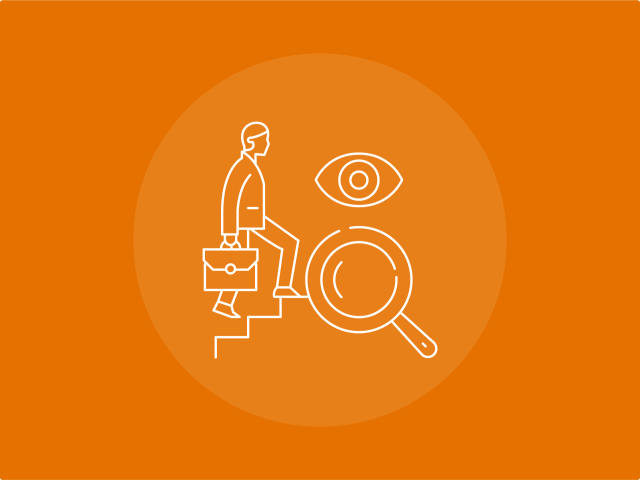

 Article
Article


Written by
“Return to normal” has been an optimistic catch phrase at workplaces around the world as managers have tried to set plans for life after the COVID-19 pandemic.
But as the delta variant, countless scrapped or modified return to work plans and a wave of job-quitting so big it’s been deemed The Great Resignation have proven, returning to normal has been anything but.
Reality has shifted the goal posts to a desire to find a new normal, based on what employees and employers have collectively learned through the past two years of pandemic-impacted life. A recent Glassdoor report revealed that 70 percent of employees surveyed wanted to split the week between home and office, 26 percent wanted to work from home full time and only 4 percent wanted to fully return to the office.
As Professor Lynn Isabella said in her article “The Hybrid Workforce” on Darden Ideas to Action, companies can’t put the genie back in the bottle. “We’ve turned a corner, and it’s going to be hard to go back to the way things were,” she said. “There are many things people have come to like about remote working, including the reduced commutes that make it easier to balance their professional and personal lives.”
“Our prior routines are scrapped and we have greater exposure to the people who matter most to us — our families. We’re waking up to the trade-offs we made against them before the pandemic,” said Professor Sean Martin, whose research explores how organizational culture and societal contexts affect leaders and followers. “People are asking: What are my habits going to be going forward? Where do I want to spend my time? People are questioning if their investment of time with a business is worth it.”
Martin suggests businesses would do well to meet employees where they are.
“If a business wants to retain employees, it needs to listen to them and be flexible,” Martin said. “For those that are inflexible and say, ‘Get back to the office,’ that’s defensible if they really believe it’s best for the business. But you have to realize some people may say ‘no.’”
Desmond Dickerson, director of Future of Work Marketing at Microsoft, spoke at Darden’s Leadership Communications Council annual meeting, led by Professors June West and Steve Soltis, this fall. He believes the future of the workplace is all about experimentation.
For example, Microsoft is discovering that employees like working at home and are more productive but are suffering from higher levels of burnout. They’re experimenting to figure out how to refresh people, support their mental health and develop the concept of “regenerative performance.”
Piggybacking the theme of experimentation, Martin offered one prediction about the uncertain future of work:
“It’s going to be a mess, but that’s ok. There’s not a textbook for this,” Martin said. Companies that press people back to the office may lose employees and need to find new hires who are a better fit. Those that try the hybrid workplace will face some logistical nightmares.
“We all have to remember: It’s ok. We have to try stuff. What we can’t sacrifice is that employees believe you have their best interest at heart. People will recognize when you are trying to take care of them.”
An expert in leadership, social class and ethics, Martin’s research addresses how organizational and societal contexts impart values and beliefs onto leaders and followers, and how those values influence their behaviors and experiences. His work has been featured in top academic journals, including Academy of Management Journal, Academy of Management Review, Journal of Business Ethics and Organizational Psychology Review, as well as mainstream media outlets including The New York Times, The Washington Post, Forbes, Fast Company, Inc., Harvard Business Review and Comedy Central.
Prior to joining the Darden faculty, Martin taught at Boston College’s Carroll School of Management and Cornell University’s Johnson Graduate School of Management.
B.A., University of California, Santa Barbara; MBA, California Polytechnic State University; Ph.D., Cornell University Samuel Curtis Johnson Graduate School of Management
Isabella is an expert in leadership and how people think about change. She is an authority on leading and managing in a global environment and in competency in global leadership. As a teacher, consultant and executive coach, she teaches individuals and companies to develop talent and organizational effectiveness. Her research focuses on questions of developing personal leadership expertise, leading change as a middle manager and on the events that shape individual careers and propel organizational change.
Isabella is co-author of the books Alliance Competence, Leader and Teams: The Winning Partnership and The Portable MBA, Fifth Edition.
B.S., Tufts University ; Ed.M., Harvard University; MBA, DBA, Boston University
West is an expert on organizational communication, particularly during times of change.
West was instrumental in the 2003 inception of the Darden/Curry Partnership for Leaders in Education (PLE) to strategically combine the most innovative thinking in business and education to provide education leaders with skills necessary for managing schools. West served as the academic director and continues to be active in the PLE’s School Turnaround Specialist Program, now the most established turnaround program in the country.
She is the university faculty liaison to the FBI National Academy in Quantico, Virginia. West also directs a Darden faculty team that teaches in the summer orientation program for the Secretary of Defense Corporate Fellows program that places active-duty military officers in corporations for a one-year fellowship.
West has consulted for many organizations, including the Louisiana Department of Education and Mississippi State University Colleges of Business and Education.
B.S.Ed., The University of Tennessee, Knoxville; M.Ed., Kent State University; Ed.D., Lehigh University